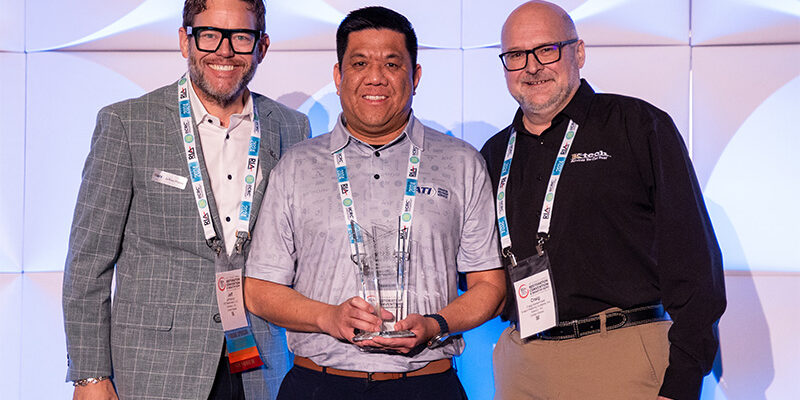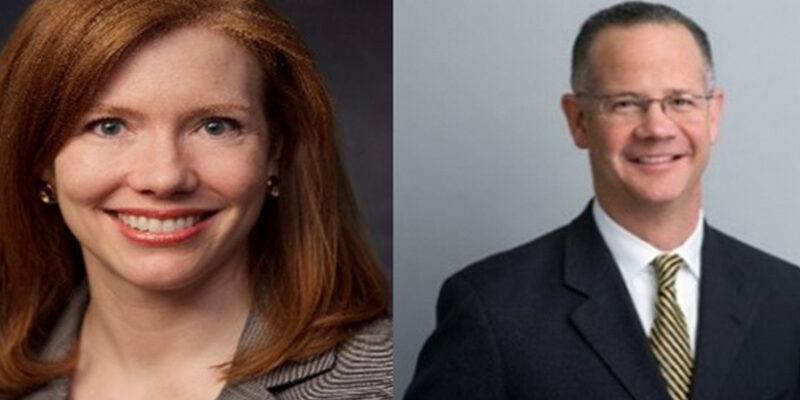Diversity of Thought, Personality, and Energy

As a female in a male-dominated industry, it’s disappointing to attend classes and seminars and hear what diversity and inclusion look like. Don’t get me wrong; I think diversity and inclusion are the cornerstones of a strong team and the foundation of a well-built company.
If you want to reach more clients, have a more profitable business, and really contribute to the betterment of society, building a diverse team and nurturing a workplace of inclusion are musts. You will not be successful without it.
Diversity—more than just looking different
The problem is diversity should not be based solely on having a team that looks different. Our team and our peers should be respected, hired, and retained not because of the diversity of appearance they bring, but because of the diversity of thought, personality, and energy. As a society, we are at risk of bowing down to the idea that diversity is based strictly on appearance. That’s not true diversity.
As a female, I don’t want a seat at the table because I look different than 90% of the other leaders in the industry; I want a seat at the table because I earned it. I earned it because I worked smarter and harder than those around me. I didn’t just try; I made it happen. Every time I hear about “holding spots for females” or “actively looking for a female in this role,” it diminishes my accomplishments. I don’t need a seat held for me, and I don’t need to be “sought out” based on my gender. My resume and my career speak volumes, and when society ties those to my gender, it lessens the perceived value of those accomplishments.
What we need are people who are genuinely different—who have diverse backgrounds, who grew up differently, who have different lifestyles and different life experiences. We need people who see the world differently. We need people who are willing to speak up and share not only their point of view but their thought process. When an individual is willing to share how they arrived at a specific conclusion, we can better understand not only that person but the world as a whole. Insight into how others process the world around them will broaden our perspective of the world.
Thought diversity
According to a poll by Quantum Workplace, 55% of the employees surveyed desire more cognitive diversity in the workplace. So, how do we build a team that thinks differently, and how do we find those people?
A workplace that attracts people with diverse thought processes is one built on respect. By fostering a culture that celebrates people that speak up and think differently, you will begin to give a voice to those who think differently
than you.
Take the time to explore all options that are presented. Walk through the pros and cons with your team. Explore new, fresh ideas that are outside the box.
I can feel your hesitation now. New sounds risky. However, according to inclusion and diversity consultant Juliet Bourke, studies show cognitive diversity can enhance team innovation by up to 20% and reduce risks taken by up to 30%. What if your company had a more creative marketing plan? What if your sales team had more unique ways of closing the deal? What if your leaders had a more engaging way of managing their teams? You will never know the potential you can unleash until you give a voice to those that think differently than you.
Employees—share your diversity
Whereas the most important thing we can do as leaders is to give our employees a team they can connect with and trust and a space to speak up, it’s still ultimately the responsibility of the employees to raise their hands.
As an employee, if you tend to be a person who is a bit timid, you need to hear this: Your employer wants to hear from you. If you have ideas that will drive the business forward, share them. Whether you’re the warehouse tech or the CEO, you’re the closest to your position—you know it the best. You’re in your position because you bring talents and abilities that others don’t; there is value in that. There is always room for improvement. Don’t rob your team by not speaking up.
I’ve spent years building a team of people who think differently than I do. When we first started our restoration company in 2012, I had to wear a lot of hats. I had to do things outside my skill set and comfort zone. While I enjoyed the stretch and I’m thankful to have been able to participate in so many areas of the business, it was mentally exhausting.
As we grew and became more profitable, I was able to hire new team members to take on the things I found more challenging. I intentionally hired people who thought differently than I did. After all, if they thought the same way I did, why pay them? I’ll just keep doing it myself. I wanted more than that for my company.
If you want more for your company, take the time to learn how your team thinks, then take the time to hire to fill in the “thought gaps.” As you do, you will build a more well-rounded, more profitable company.












